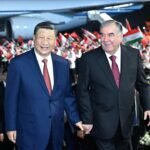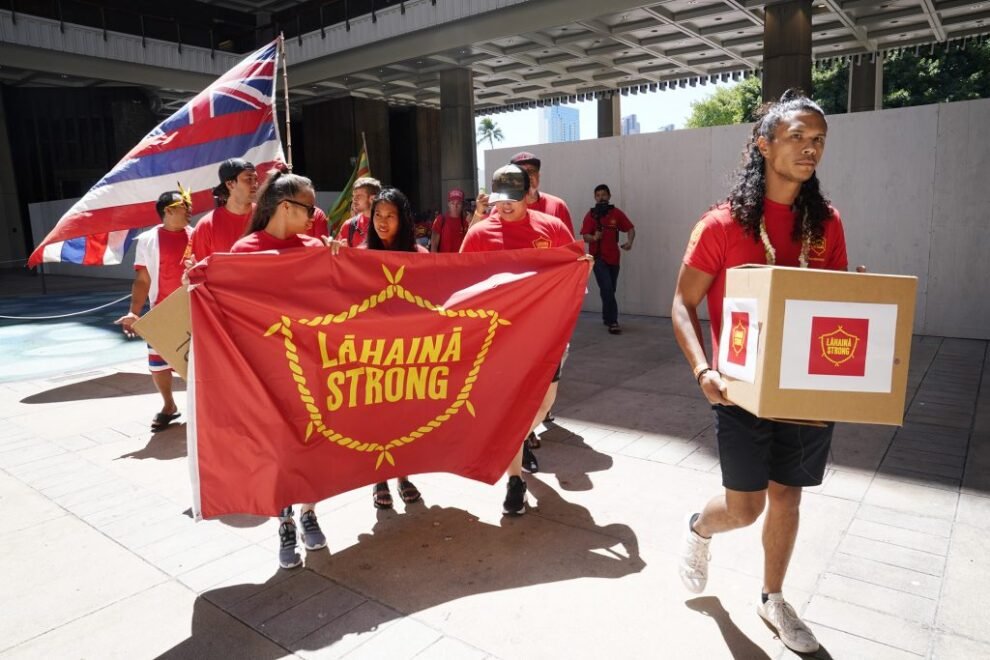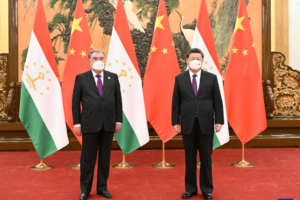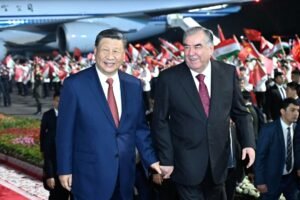Growing Hawaii’s economy is a critical issue that should not be ignored, notwithstanding the problems facing Maui, economists say.
A prominent Hawaii business executive and economist have a request for policymakers before a legislative session destined to be dominated by issues involving land use, water rights and the rebuilding of Lahaina. Their message: Don’t forget about the perennial question of how to diversify the state’s economy beyond tourism.
“Unless Hawaii takes note and acts, we fear that Hawaii’s unique people, culture, environment, and way of life are at risk – the Hawaii of the future may be unrecognizable,” Patrick Sullivan, the founder and chief executive of Oceanit writes in a paper titled “Hawaii – Losing the Future?” It was co-authored with Paul Brewbaker, principal of TZ Economics and a prominent voice in local economics.
It’s not just that tourism has negative side effects on natural and cultural resources, the authors argue. It’s also that tourism in real terms hasn’t grown in the past 30 years when accounting for inflation.
And things are only getting worse, according to Brewbaker. What makes “an economic kick in Hawaii’s ass” needed now, he says, is that Hawaii’s per capita gross domestic product, which for decades exceeded or equaled that of the mainland, has fallen below the average since the Covid-19 pandemic and hasn’t recovered.
Brewbaker also said there’s no sign that it will recover and “scant evidence of a coherent economic development or economic recovery strategy.”
Their proposed solution: human capital formation. That means generating a highly educated workforce to provide workers for high-paying industries and creating innovations that Hawaii can export. Targeting some industries for growth over others must be part of the plan, Sullivan says, but most important are people who will be trained to participate in a range of industries – including some we can’t imagine now.
“Although most in Hawaii recognize that the University of Hawaii’s football team is important to the community, few fully appreciate that the future relies on the University of Hawaii supporting research and investing in human capital formation — producing graduates, scientists, engineers and entrepreneurs, and creating knowledge,” Sullivan and Brewbaker write. “To make this happen will require a major shift in thinking about Hawaii and its place in the world.”
One example, he points to is the University of Hawaii’s Institute for Astronomy. Setting aside controversies about the Thirty Meter Telescope International Observatory proposed for the summit of Mauna Kea, Sullivan compared UH to the University of Arizona, which has spun off a business ecosystem around astronomy in Tucson that he said Hawaii lacks.
“The state does zero to support this,” he said.
Oceanit has been working to commercialize innovative technology in Hawaii for decades. In an interview, Sullivan couldn’t say what state money or legislation would be needed to scale up Oceanit’s proof of concept into a statewide endeavor. But he said he hopes lawmakers will heed the overarching message in his paper ahead of the legislative session that starts on Jan. 17.
Rep. Daniel Holt, chair of the House Committee on Economic Development, and vice chair Rep. Rachele Lamosao didn’t respond to calls for comment. Rep. Luke Evslin, who chairs the chamber’s Housing Committee, which is likely to have a big role in the session, also didn’t return a call to discuss his plans.
Steven Bond-Smith, an economist with the University of Hawaii Economic Research Organization who has been working on the same problem, says a highly educated workforce isn’t the only answer.
He largely agrees with Sullivan and Brewbaker. “They draw attention to the problem really well,” he said.
But Bond-Smith argues that simply building up human capital alone doesn’t work in a small, isolated and open economy like Hawaii. Such places tend to pick one industry and grow it to a large scale. In Hawaii, he said, that’s happened with whaling, sandalwood, agriculture and, now, tourism.
Human capital with skills not suited to the prevailing industry tends to leave for places where the scale of opportunity is larger, Bond-Smith said.
The key for Hawaii is to find industries related to things Hawaii’s already good at and target those, he said. He is doing research to identify those industries as a starting point for discussions. Central to the work is the idea of relatedness. Where certain industries exist at a large scale, he said, data shows that other related industries also tend to exist.
It’s a variation on what economic development experts call the cluster strartegy. Bond-Smith’s idea is to identify industries that should exist here on a large scale but don’t, then figure out why.
“We’ll have a list of industries that have a high probability of being here, but aren’t,” he said.
While Sullivan tends to disagree with UHERO’s work focusing on industry clusters as a starting point, there’s a point of overlap: the importance of education and research as a foundation for economic diversification.
Bond-Smith says Oahu’s “knowledge creation and education” cluster including UH is an area for potential growth of related industries, along with tourism and agriculture and food processing. Sullivan and Brewbaker point to the need to educate people. Both strategies involve investing in UH as an economic development engine.
The challenges facing Maui as it tries to recover after the Aug. 8 wildfires that destroyed much of Lahaina shouldn’t prevent the state from investing to help diversify the state’s economy. In fact, he said, the neighbor islands suffer the most when something disrupts the visitor industry.
“It’s an even bigger problem on the neighbor islands because they’re even more dependent on tourism,” he said.
“Hawaii’s Changing Economy” is supported by a grant from the Hawaii Community Foundation as part of its CHANGE Framework project.
Source: Civil Beat











